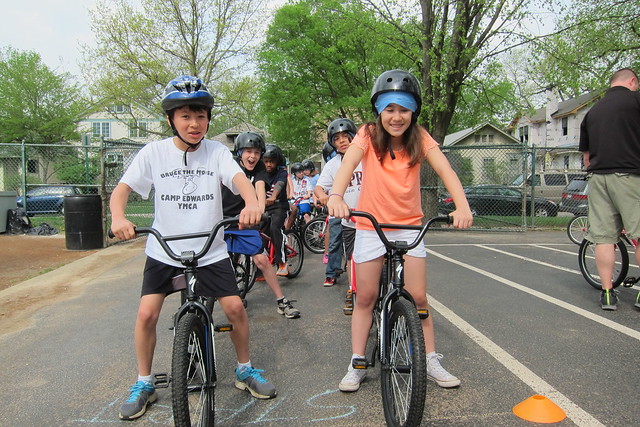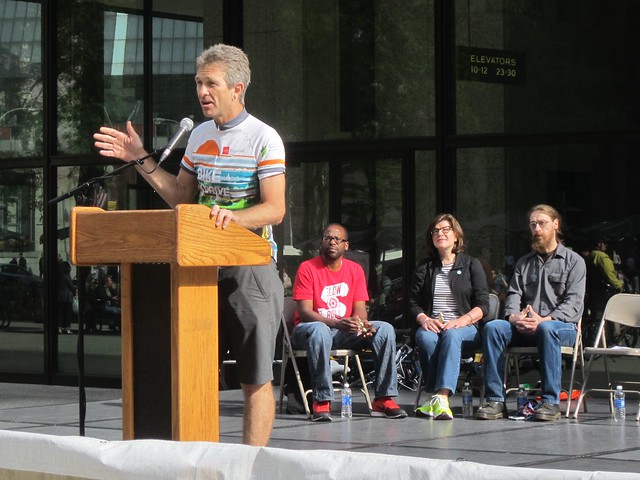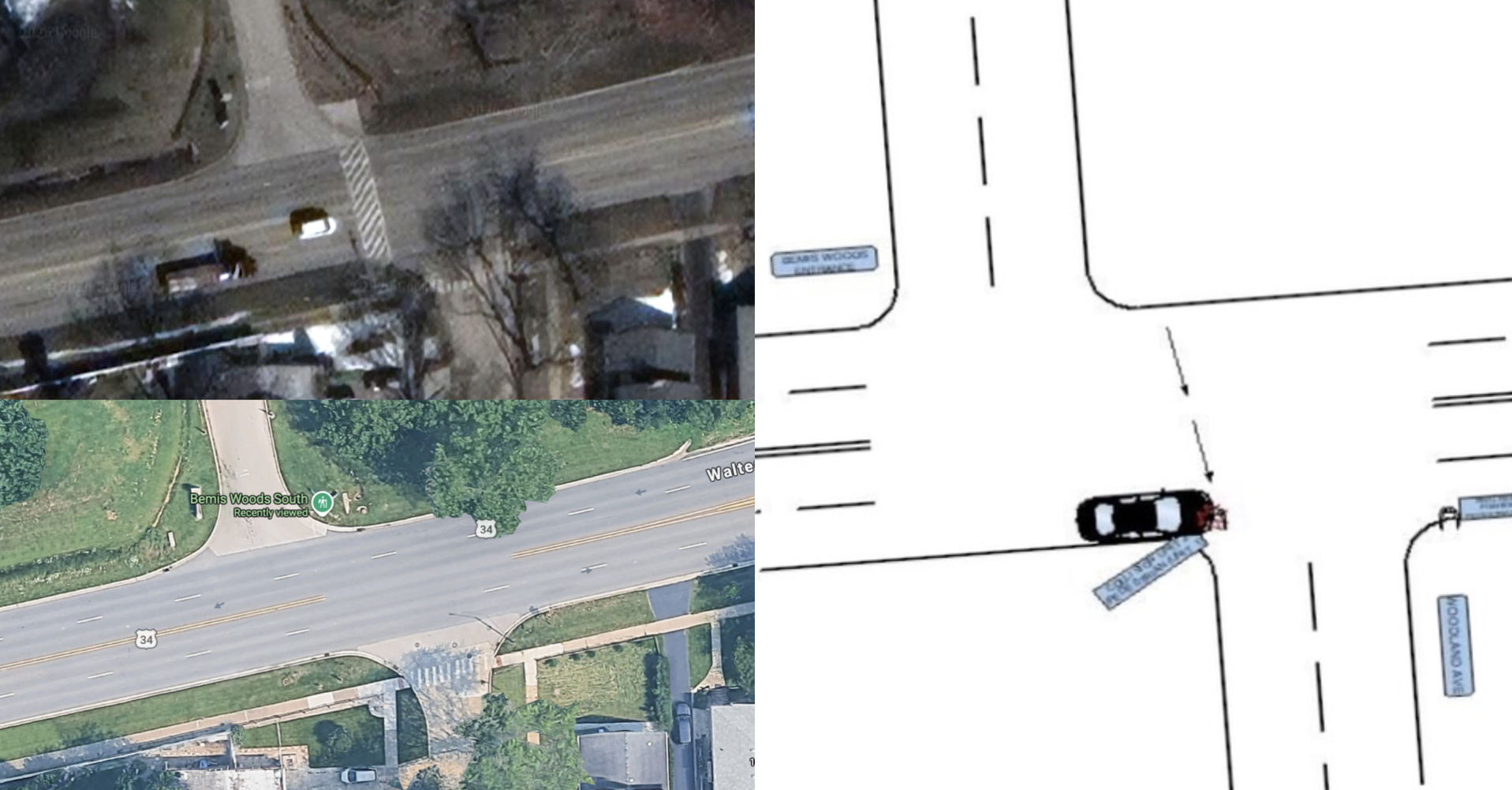
Streetsblog Chicago is on vacation from July 13-17 and will resume publication of Today’s Headlines and daily articles on Monday, July 20. We’ll keep in touch this week via social media and occasional posts.
The scrappy little advocacy group that was founded in 1985 as the Chicagoland Bicycle Federation is now the Active Transportation Alliance, a venerable institution with a major influence on local transportation policy.
As part of its 30th anniversary celebration, Active Trans recently announced five major goals for promoting safe, efficient streets, and started a fundraising campaign to help pay for these initiatives. They also heralded the birth of a new sister nonprofit called Walk Bike Go, which will take over the organization’s paid consulting work.
“Our main theme this year is ‘We still have a long way to go,’” said Active Trans executive director Ron Burke. “With recent developments like protected bike lanes and the Divvy bike-share system, we’ve made progress to the point where rapid change is possible.”
The five objectives of the so-called 2020 TransFormation Campaign are all projects that the group has already been working on to some degree, but now they plan to shift their activities into a higher gear. The goals are:
- Region-wide low-stress bike network: A dense, connected network of low-stress bike routes across Chicago and the suburbs.
- Transit Future: Funding for the “Transit Future” plan to build multiple new rapid transit projects.
- Biking/walking education in elementary schools: All public elementary schools in the state begin teaching biking and walking safety and encouragement.
- Mobility education in high schools: High school driver’s education becoming “mobility education” with bike, walk and transit training in addition to driving.
- Vision Zero: The state, the city of Chicago and suburbs adopt and implement comprehensive Vision Zero plans that focus on eliminating traffic fatalities and serious injuries.
In order to pursue these objectives, Active Trans is launching a new fundraising drive, with the goal of raising an additional $250,000 per year for the next five years, in addition to its current annual operating budget of about $3 million. “We want to be able to expand and take on these projects, but we don’t really have the capacity right now,” Burke said. The additional revenue would mostly be used for new staff, including a full-time director of government relations, and new community organizers.
Political lobbying will be key for achieving most of the five objectives. Burke cited the example of mobility education. “The way we can win this particular goal is in Springfield, by getting legislation passed, or getting the state board of education to change their curriculum for driver’s ed or phys ed.
Right now, Active Trans and the Center for Neighborhood Technology are trying to persuade Cook County commissioners to create a dedicated funding stream for Transit Future in conjunction with a proposed sales tax hike to address the pension crisis.
The organization also announced that the new Walk Bike Go nonprofit will be taking over its fee-for-service work. I myself am a former Active Trans consultant – during my stint at the Chicago Department of Transportation bicycle program in the early 2000s, I was actually an employee of the nonprofit, which was paid by the city to provide bike program staff. A few Active Trans employees are currently stationed at CDOT.
The advocacy group is also helping to run the Chicago Department of Public Health’s Play Streets block party program. They’re also developing active transportation plans and complete streets policies in several low-income Cook County municipalities as part of a contract with the county’s health department. Active Trans has also done consulting work for many other suburbs over the years, helping to create pedestrian and bike plans, as well as mobility education programs.
There has long been a perception that Active Trans’ consulting work conflicts with its advocacy work, especially when it comes to the organization’s relationship with the city of Chicago. Many peer organizations, such as New York City’s Transportation Alternatives, don’t do consulting work for their city governments.
Some Chicago transportation advocates have argued that Active Trans’ business relationship with the city of Chicago and other government entities makes it more difficult for the nonprofit to publicly criticize bad policy decisions. In fact, many Streetsblog Chicago readers feel that’s one reason our site is an important voice in local advocacy: We often can say things that Active Trans would like to say but can’t.
Burke said the creation of Walk Bike Go is partly about addressing the perception, rather than the reality, that Active Trans’ consulting work presents a conflict of interest with its advocacy work. “We’ve found there’s sometimes a misconception of a conflict, where we don’t see that as an issue,” he said. “I’m constantly asking myself, would we be interacting with the city or the county differently if we didn’t have this contract? The answer has consistently been no.”
He added that he feels that confrontational advocacy is usually not very successful at the city and county levels. “It’s so much more effective to have a seat at the table and to be working with them, rather than against them.”
However, Burke said his group’s policy has always been to put its advocacy goals ahead first. “If that means we’re not going to get a contract, so be it.” He noted that, in 2013, after SBC broke the story that the Illinois Department of Transportation was blocking the installation of protected bike lanes on Chicago streets, Active Trans didn’t hesitate to criticize this obstruction, even though the group was consulting on the state bike plan.
“We didn’t back down, and IDOT kicked us off that contract,” Burke said. “They eventually conceded, and now they’re putting in curb-protected bike lanes on Clybourn.” He added, aside from the conflict of interest issue, another purpose of Walk Bike Go is to spotlight Active Trans’ consulting work, which often gets overshadowed by it advocacy efforts.
Walk Bike Go will be a separate 501c3 nonprofit, with a new board of directors, although Burke will also serve as its executive director, and the consulting staff will be housed at Active Trans’ River North office. While there will be some overlap with the current Active Trans board, there will be people with transportation planning and engineering business experience on the new board. “But we’re not trying to replicate a private transportation consulting firm,” Burke said. The new organization is slated to begin operations on on January 1.





